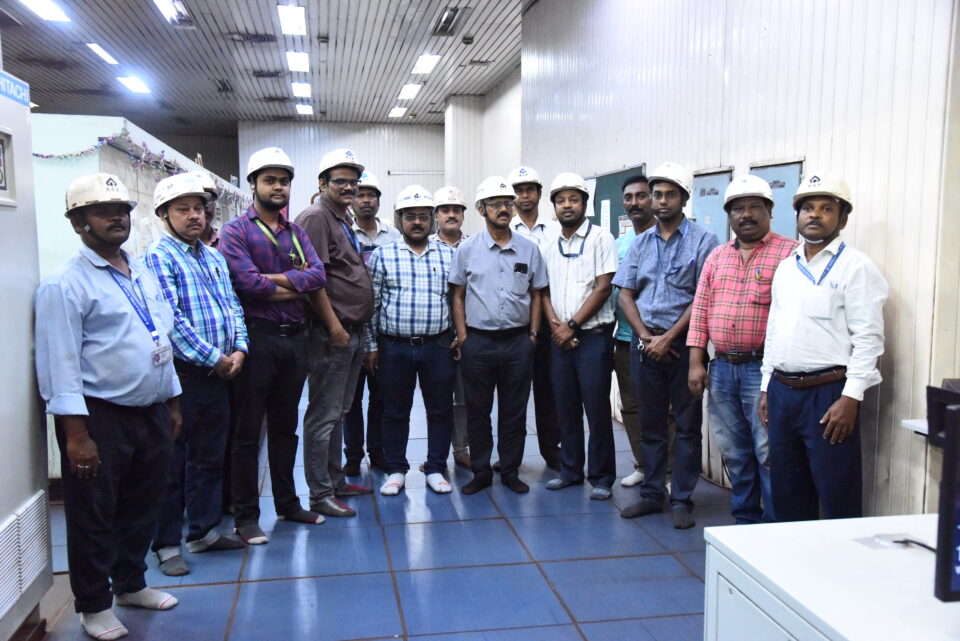Demonstrating exceptional technical expertise and innovation, an enterprising team from Sintering Plant-II (SP-II) of SAIL, Rourkela Steel Plant (RSP), has successfully developed an in-house solution to overcome a critical operational challenge in the weighing system of SP-II. The intervention has resulted in substantial savings exceeding Rs. 10 lakh and significantly enhanced operational excellence.
The team successfully replaced the obsolete communication card (JKT card) in the weighing system with an indigenously designed and developed system. The new system has been commissioned and is functioning efficiently, further improving operational reliability.
Notably, SP-II produces about 2 million tonnes of sinter of the desired quality to feed the Blast Furnaces. The plant receives raw materials such as basemix, coke, limestone, and dolomite from the Raw Material Handling Plant (RMHP), calcined lime from CP-2, and -5mm sinter fraction from the Blast Furnaces. These materials are fed through weigh feeders and loss-in-weight systems, measured precisely by belt weighers, and mixed in the Mixing and Balling Drum before entering the sintering process.
The raw material feeders operate on a tons-per-hour basis, with set points and feed rates controlled through a closed-loop system using the Distributed Control System (DCS), Remote Control Unit (RCU), and Weigh Feeder Control (WFC). Communication among these systems relied on analog signals interfaced via a common component known as the JKT card.
In operation since the plant’s commissioning in 1995, these JKT cards had become obsolete, leading to frequent erratic feeding and occasional malfunctions. Moreover, due to their obsolescence, no spare parts were available, and a complete replacement of the weighing system would have required a massive investment.
Rising to the challenge, a dedicated SP-II team comprising Mr. P.K. Nath, Deputy Manager; Mr. C.B. Munda, Deputy Manager; Mr. S.S. Sar, Junior Officer; and Mr. A. Maji, OCT Trainee, led by Mr. S.S. Jena, DGM & Head of Section, thoroughly studied the card’s functions and successfully designed a replacement system using in-house signal isolators and signal converter cards. The new system has since been commissioned and is operating flawlessly.
The innovative project was carried out under the active guidance and support of Mr. S.K. Padhi, GM In-Charge & HoD, SP-II, and Mr. Sekhar Narayan, CGM (Sinter).
The in-house intervention has not only ensured trouble-free operations but also paves the way for similar cost-effective innovations in other sections of the plant.
This achievement exemplifies the commitment of RSP employees to innovation and cost optimization, contributing significantly to operational excellence and self-reliance.

